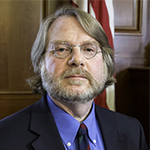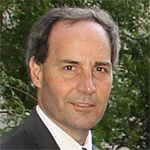The MGH Center for Law, Brain and Behavior is pleased to introduce the newest members of our Faculty and Advisory Board. These new members bring expertise in child psychiatry, government, moral cognition, the adolescent brain, public affairs, and Massachusetts politics. We look forward to their contributions to the ongoing work of the Center for Law, Brain and Behavior.
Faculty
 Gene Beresin, M.D., is Executive Director of The Clay Center for Young Healthy Minds, Professor of Psychiatry at Harvard Medical School, and Senior Educator in Child and Adolescent Psychiatry at Massachusetts General Hospital. Dr. Beresin brings a range of expertise regarding child psychiatry and scientific media fluency. Dr. Beresin has already blogged on behalf of CLBB on the PBS Brains on Trial blog. Dr. Beresin will contribute to our work at the interface between adolescent development and juvenile justice.
Gene Beresin, M.D., is Executive Director of The Clay Center for Young Healthy Minds, Professor of Psychiatry at Harvard Medical School, and Senior Educator in Child and Adolescent Psychiatry at Massachusetts General Hospital. Dr. Beresin brings a range of expertise regarding child psychiatry and scientific media fluency. Dr. Beresin has already blogged on behalf of CLBB on the PBS Brains on Trial blog. Dr. Beresin will contribute to our work at the interface between adolescent development and juvenile justice.
 David Borsook, M.D., Ph.D., is Professor of Anesthesiology at Boston Children’s Hospital and Director of the Pain and Imaging Neuroscience Group at Massachusetts General and McLean Hospitals. Dr. Borsook is a leading neuroscientist studying the brain’s response to pain and will contribute to our work examining how the changing science of pain may impact the legal definition of “Pain and Suffering.”
David Borsook, M.D., Ph.D., is Professor of Anesthesiology at Boston Children’s Hospital and Director of the Pain and Imaging Neuroscience Group at Massachusetts General and McLean Hospitals. Dr. Borsook is a leading neuroscientist studying the brain’s response to pain and will contribute to our work examining how the changing science of pain may impact the legal definition of “Pain and Suffering.”
 Josh Greene, Ph.D., is the John and Ruth Hazel Professor of the Social Sciences and Director of the Moral Cognition Lab in the Department of Psychology at Harvard University. Dr. Greene is a philosopher and neuroscientist, whose work examines new concepts of morality and justice and the way our “tribal emotions” drive social behavior. His 2013 book, Moral Tribes, explores these issues. Dr. Greene gave a fantastic talk on Edge.org about the role of brain imagining in the social sciences.
Josh Greene, Ph.D., is the John and Ruth Hazel Professor of the Social Sciences and Director of the Moral Cognition Lab in the Department of Psychology at Harvard University. Dr. Greene is a philosopher and neuroscientist, whose work examines new concepts of morality and justice and the way our “tribal emotions” drive social behavior. His 2013 book, Moral Tribes, explores these issues. Dr. Greene gave a fantastic talk on Edge.org about the role of brain imagining in the social sciences.
 Leah Somerville, Ph.D., is Assistant Professor of Psychology at Harvard University and Director of the Affective Neuroscience and Development Laboratory. Having trained with B.J. Casey of the MacArthur Research Network on Law and Neuroscience, Dr. Somerville is an expert in adolescent brain development and how emotions interact with cognition and behavior during this crucial developmental time.
Leah Somerville, Ph.D., is Assistant Professor of Psychology at Harvard University and Director of the Affective Neuroscience and Development Laboratory. Having trained with B.J. Casey of the MacArthur Research Network on Law and Neuroscience, Dr. Somerville is an expert in adolescent brain development and how emotions interact with cognition and behavior during this crucial developmental time.
Advisory Board
 Katherine Clark is a member of the U.S. House of Representatives, Massachusetts 5th District. Representative Clark, while in the Massachusetts State Senate, served as Chair of the Judiciary Committee and Vice Chair of the Mental Health and Substance Abuse Committee, and continues to advocate for mental health issues in Congress.
Katherine Clark is a member of the U.S. House of Representatives, Massachusetts 5th District. Representative Clark, while in the Massachusetts State Senate, served as Chair of the Judiciary Committee and Vice Chair of the Mental Health and Substance Abuse Committee, and continues to advocate for mental health issues in Congress.
 Leslie Cornfeld is a public policy advisor, former Federal Prosecutor, and non-profit consultant. She was appointed Chair of New York City Mayor Michael Bloomberg’s Interagency Task Force on Truancy, Chronic Absenteeism & School Engagement in 2010 and previously served as the Deputy Chief of the New York City Commission to Investigate Alleged Police Corruption. Ms. Cornfeld’s public policy and juvenile justice experience will contribute to our ongoing juvenile justice research.
Leslie Cornfeld is a public policy advisor, former Federal Prosecutor, and non-profit consultant. She was appointed Chair of New York City Mayor Michael Bloomberg’s Interagency Task Force on Truancy, Chronic Absenteeism & School Engagement in 2010 and previously served as the Deputy Chief of the New York City Commission to Investigate Alleged Police Corruption. Ms. Cornfeld’s public policy and juvenile justice experience will contribute to our ongoing juvenile justice research.
 Rodney Dowell is Executive Director of the lawyer support network Lawyers for Concerned Lawyers, Inc. He also directs the Massachusetts Law Office Management Assistant Program. Mr. Dowell will bring experience as a lawyer and adviser to lawyers to the CLBB mission.
Rodney Dowell is Executive Director of the lawyer support network Lawyers for Concerned Lawyers, Inc. He also directs the Massachusetts Law Office Management Assistant Program. Mr. Dowell will bring experience as a lawyer and adviser to lawyers to the CLBB mission.



